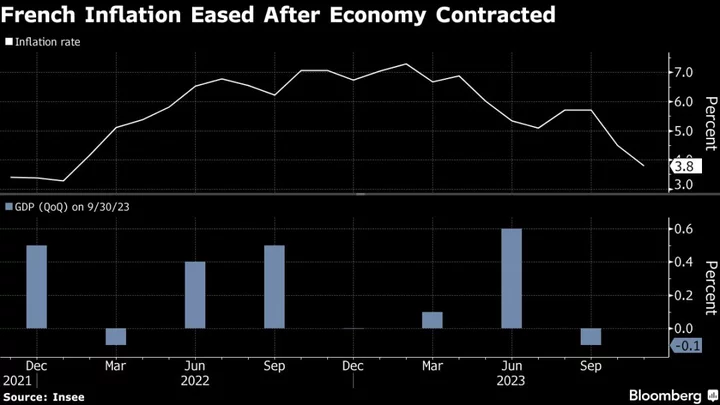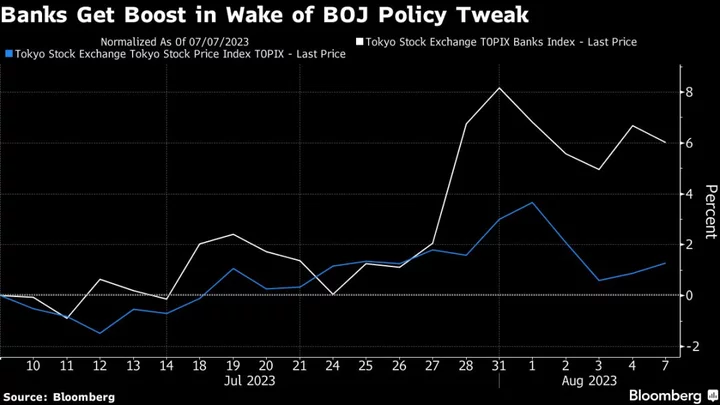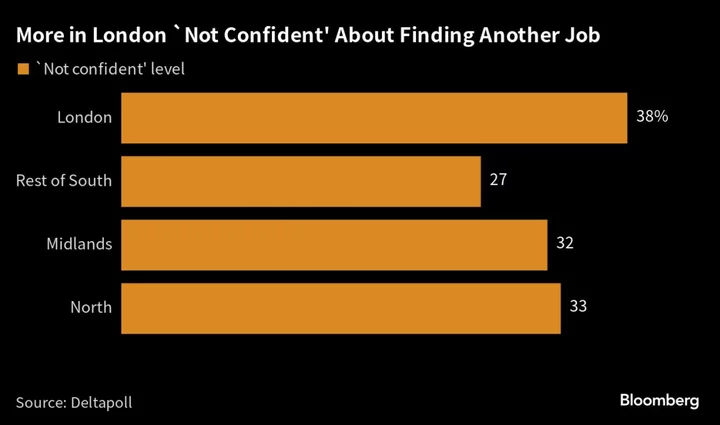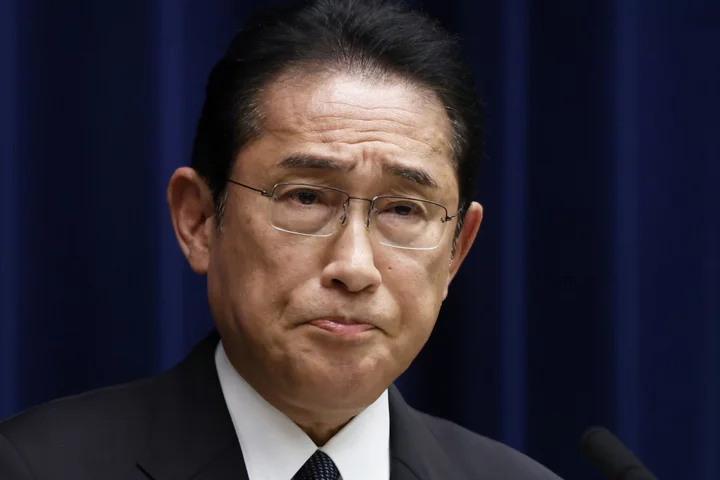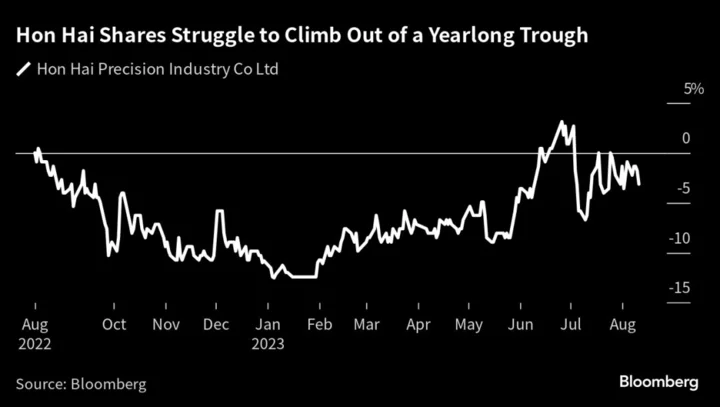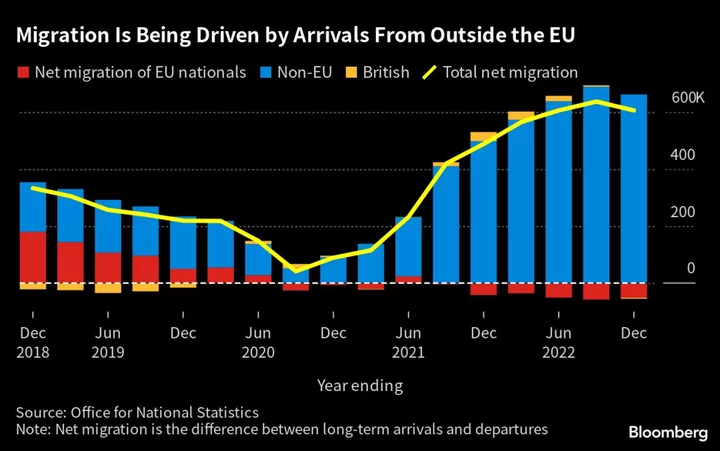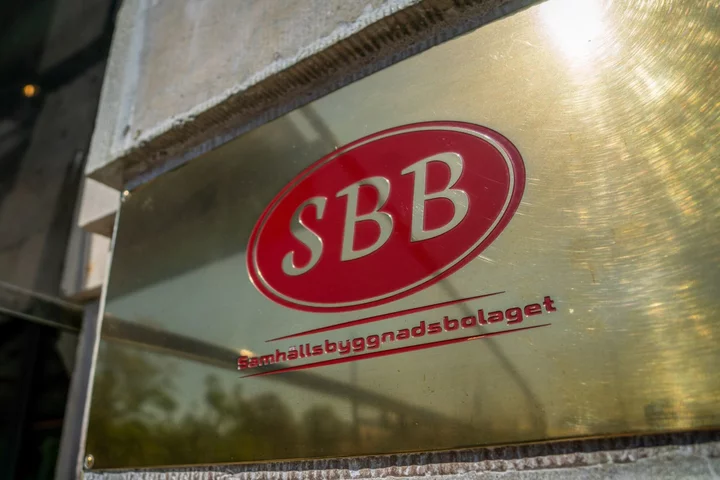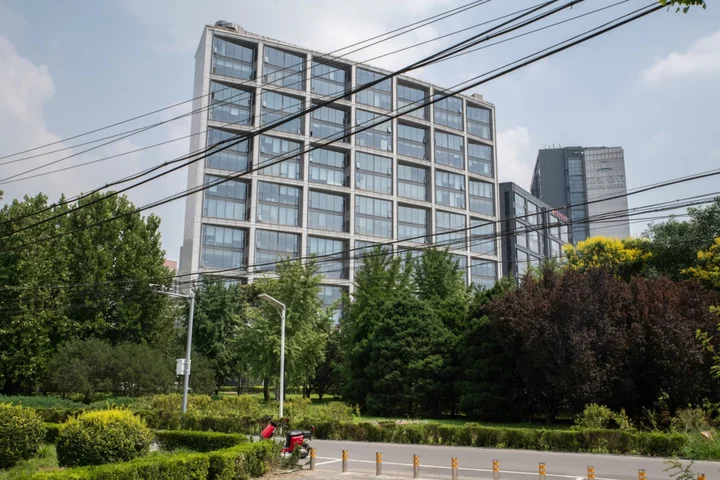France’s economy unexpectedly shrank in the third quarter while November inflation sank more than anticipated — prompting investors to step up bets that the European Central Bank will cut interest rates in the spring.
While output had remained relative strong as Germany suffered the brunt of a manufacturing slowdown, French statistics agency Insee on Thursday revised the 0.1% expansion it initially reported for the three months through September to a 0.1% fall.
There was better news on inflation, which eased to 3.8% this month — the lowest level since the start of last year — following October’s 4.5% reading. Analysts surveyed by Bloomberg had expected a 4.1% increase.
With price gains abating across Europe and the region on the brink of a recession, money-market traders are now fully pricing a first cut in the ECB’s deposit rate for April — sooner than officials in Frankfurt have been suggesting.
The retreat in inflation following its biggest spike of the euro era backs the ECB’s decision to stop raising rates last month. Despite market wagers, though, officials caution that they’re in no hurry to begin cutting.
Inflation in France has eased more slowly than elsewhere in Europe as the government partially lifted caps on electricity costs. Other components of the basket have kept tracking downward, however. In November, services inflation slowed to 2.7% from 3.2% in October and manufactured goods price increases declined to 1.9% from 2.2%.
The headline number could jump to 4.5% in December, according to Bloomberg Economics’ nowcast.
French output was dragged down by investment and consumer spending, with a separate release showing the latter dropped 0.9% from the previous month in October on a decline in food and energy outlays. Economists had expected a 0.2% fall.
Speaking on France Inter radio shortly before the data were published, Finance Minister Bruno Le Maire stood by the government’s projection for gross domestic product to expand to 1.4% next year.
“If you look a bit further ahead, in 2024, 2025, we will have a lot less inflation, interest rates that will have stabilized,” he said. “I’m convinced growth will be able to pick up again.”
--With assistance from Ainhoa Goyeneche, Joel Rinneby, Aline Oyamada and James Regan.
(Updates with Bloomberg Economics nowcast in seventh paragraph.)

